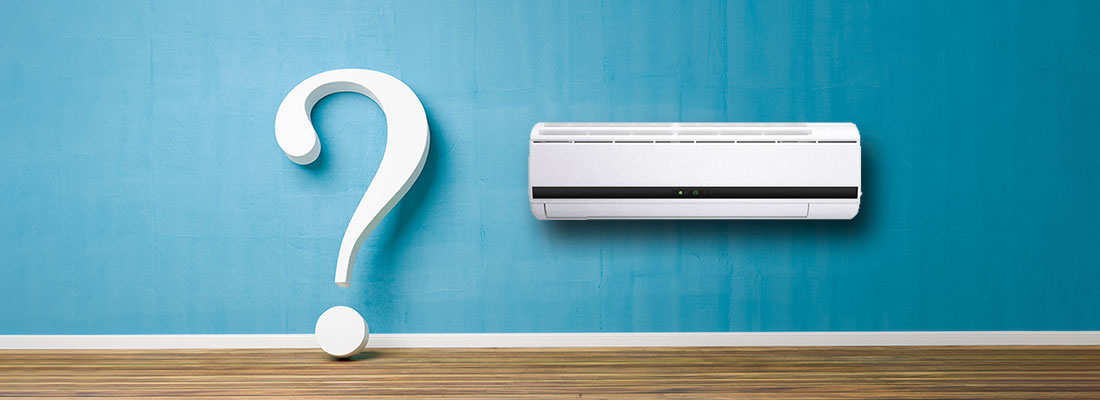Questions To Ask Your Air Conditioning Installer
Below are questions to ask your air conditioning installer before you purchase a system. Any reputable installation company will be more than happy to provide the information you need, if they can’t answer any of these, think about whether or not you want to give them your business.

Choosing the right company
- Are your installers fully insured licensed technicians?
A refrigerant handling licence is required by anyone installing or servicing a refrigerated air conditioner. This ensures that they are qualified to handle refrigerants. Ask to see this licence or you can check if a business is authorised with licensed technicians at lookforthetick.com.au.
- How long have you been in business?
Be wary of operators with less than a few years of operation. If they have less than this, ask how long the owner of the business has been in the air conditioning business.
- Do you have a physical office I can visit?
If not, do not use them, if they do, visit.
- Can you provide me with references in my area?
A good company with a strong track record will want to tell you about their happy customers.
- Do you use sub-contractors?
A company that uses direct employees, under their own supervision is the best option. If the company uses subcontractors, ask how they know they are qualified to do the job, how the work is supervised and who takes responsibility for the job and installation warranty.
- Do you provide maintenance services?
It is best to choose an installer that also provides a comprehensive maintenance service. This may make it easier if you have any warranty issues in the future. They will have easily accessible technicians familiar with your air conditioning system and are likely to have readily available spare parts.
- Do you do a site visit? What does this involve?
Every home is different, and with air conditioning, one size does not fit all. Your system designer/installer should visit your premises to do a comprehensive assessment to calculate what you need. This “heat load assessment” takes into account the characteristics of your home, including the size of your rooms, building materials, insulation, ceiling height, and position and size of windows. An assessment based on floor space only will be inaccurate.
- What documentation will I receive before and after the installation?
Prior to the installation you should receive a comprehensive quote and contract. After the installation you should be given manufacturer and installation warranty information (if you haven’t already), compliance certificates and a maintenance schedule.
- How long does the installation take? Will it be finished in one visit?
You want assurance that if they start your job, they will finish it. You do not want to be squeezed into a busy schedule.
Understanding your quote
- What is included in the quote?
If you understand exactly what you are being quoted for, you can more easily compare your three quotes. Ask if there are any other costs that have not been included or might arise due to unforeseen problems.
- If the job involves ducting – Does the quote include sealing the duct work and installing dampers on all the supply line taps?
Ducts should be sealed to prevent air leaks and dampers installed to ensure balanced air flow.
- Does my electrical supply have the capacity for this system?
If not, what changes and costs are involved? Are these included in the quote?
- When is payment required?
You will probably be asked to pay a deposit but do not pay the full fee until the installation is complete.
Choosing the Right System
- What system do you recommend for my home and why?
A good company will make recommendations based on your preferences (such as noise level, visual impact and cost) and a heat load assessment. Ask them to explain their recommendation – why is it the best option for you? They may also present you with options in efficiency, refrigerant type, filtration and controls. You should have time to make an informed and unpressured decision.
- Are there any council restrictions or applications involved? What are these costs?
- How much will the system cost to run?
- Who manufacturers the equipment?
Is the manufacturer established and able to provide technical advice and spare-parts when required? Check the reputation of this company by checking online product reviews.
- How long is the warranty valid for and what does it cover?
Ask about both the manufacturer’s warranty and the installation warranty. They should be able to tell you who will cover the cost of shipping (if any parts need to be sent back to the manufacturer) and fitting replacement parts.
- What maintenance is required and how much does it cost?
- How noisy is this system? How do you minimise noise?
- What will the system look like? Where will the units be placed – indoors and outdoors?
- What are the maximum and minimum ambient temperatures in which the air conditioner will be effective?







